Have To Vs Must Difference
Answer (1 of 6) What is the difference between must've and the sentence "must have had?.

Have to vs must difference. I have to file reports every week. Need to vs have to vs must can be used as synonyms Sometimes That’s the good news Generally, they all mean that you’re talking about a responsibility, an obligation, or something that is important to do This is where they are similar In positive sentences. Must doesn’t change its form, whatever be its tense or the number and person of its subjectIt can refer to the present or future You must do this now (Present) He must pay damages (Future) You must file a petition (Future) Must can refer to the past only when it is used with the present perfect of the main verb She must have gone home(Here must refers to the.
The main differences between must and have to are Must means "really should or else it will be bad for you", it expresses an obligation forced by the speaker Have / Has to expresses general obligations When we are talking about another person's obligation we use have to, too We use have to when the obligation comes from outside. “I must” is in the present tense and means you have to do something “I had to” is in the past tense and it is something you were obliged to do and had already done ’Have to’ and ’must ’ are both used to express obligation To use them correctly, you have to. While questions with "must" are grammatically correct, it is more usual nowadays to use "have to" for questions There is no past form of must for obligation We had to show our passports at the border We weren’t allowed to use calculators in the exam Or, we couldn’t use calculators in.
Be careful with the negative of Must and Have to There is a BIG difference in meaning between Mustn’t and Don’t have to Mustn’t means something is prohibited or it is not allowed It is important that you do NOT do something Don’t have to means there is NO obligation to do something. Must = used for strong advice, obligation, and rules;. 9 rows The main difference between must and have to, is that while must is a modal verb, have to.
While ''have to'' sounds more like a compulsion to which there may even be penalty / punishment, ''should'' signifies the onus of doing something that may display how responsible someone is From what I interpret, use of the two differs on the basis of responsibility and compulsion Show activity on. We use have to and must to express obligation There is a slight difference between the way we use them have to Have to shows us that the obligation comes from outside the speaker We have to wear a uniform when we're working in reception (Student to teacher) When do we have to hand in our homework?. Have to, must Have to is NOT an auxiliary verb (it uses the verb have as a main verb) We include have to here for convenience Must is a modal auxiliary verb In this lesson we look at have to, must and must not, followed by a quiz to check your understanding have to.
Must expresses an opinion an inference, a conclusion, based on known details Must have expresses an opinion about an earlier (past) situation A CONCLUSION The car driver must have panicked when he saw the buses moving in on both sides The bus passengers must have heard a crunch (sound) The car passengers must have escaped out the back (No other exits. Answer (1 of 12) This is a common mispronounciation problem ‘Must have' is correct We get confused with the contraction ‘must've' which is often pronounced so quickly and sloppily that it sounds like ‘must of' Please, for the sake of good grammar,. As verbs the difference between must and will is that must is to do with certainty;.
It is his duty to be Choose according to context In both sets of examples, the first interpretation is indicated he has to be same as 'he must be' (less used alternate, in my opinion) (B) he should be 1) It is probable that he is. 1 Must and Have To Must and have to are both used to talk about obligations things you cannot choose not to do For example We must talk to her before she leaves I have to go into work early tomorrow If you say, We must talk to her before she leaves, you mean that you think this is very important, and you need to do it When you say, I have to go into work early. Expressing “must” or “have to” Contents hide 1 When there’s something that must or must not be done 2 Using 「だめ」, 「いけない」, and 「ならない」 for things that must not be done 3 Expressing things that must be done 4 Various shortcuts for the lazy 5 Saying something is ok to do or not do.
Can we always use them in the same w. Must, have to and have got to are all used to express obligation or the need to do something They can be used interchangeably in the present tense, except that must suggests that it is the speaker. Had better is used to give strong advice.
2 Answers2 Show activity on this post Have to contrasts with must in that it usually expresses an obligation imposed by someone other than the speaker Had to is the past tense of have to and may be used in cases where a past equivalent of must is required. Difference Between Should and Must Should vs Must The words “should” and “must” are modal auxiliary verbs or simply modals They provide information about the function of the main verb following it Both “should” and “must” are similar in meaning except that “must” is a much stronger word as compared to “should” “Should” is the past tense of “shall” “Should. As epistemic modals, mustmeans 'necessary, in my opinion' (He must be home by now), while shouldmeans 'likely, in my opinion' (He should be home by now) Have tostill means mustepistemically, but it's not as common outside deontic usages –.
What is the difference?. What is the difference between Have To and Must?. Have to = used for strong advice, obligations, and rules;.
“I must” is in the present tense and means you have to do something “I had to” is in the past tense and it is something you were obliged to do and had already done ’Have to’ and ’must’ are both used to express obligation To use them correctly, you have to decide where Continue reading MyEnglishTeachereu Blog 0. I need to go to the store I have to go to the store I must go to the storeDo these sentences mean the same thing?. (A) he must be 1) The only possible conclusion from the evidence is that he is 2) He is obliged to be;.
This question was posted by Andie, but was accidentally deleted I'm looking for clear examples to illustrate the difference between "have to" and "must" It is clear to me that you use "have to" when there's an obligation that is imposed from outside (lawsrules), whereas "must" expresses what the speaker thinks is necessary But browsing through different books I've found. They need to study more if they want to get good grades Sometimes, "must" and "have to" can be used to speak about responsibilities However, "must" is generally used for strong personal obligations and "have to" is used for responsibilities at work and in everyday life I must do this right now!. Al has to work tomorrow so he can't come.
Hi, I'm completely confused as to how to use must and must have been Here are sample sentences The mail must be lost in the mail VS The mail must have been lost in the mail Are both of these grammatically correct and they both apply to something that is thought to be lost in the mail?. In the case of (1), the phrase. Hi everybody ,I have a question that has been in my mind for a long time I had a fight with my English teacher in the past for that question ,What are the differences between ''should'' , ''must '' and '' have to ''?I don't think that there is any differences between them especially with ''must'' and ''should'' so can any one help me to understand that rule or the difference between.
Must vs have to difference Now, let’s look at this MUST vs HAVE TO concept 1 To talk about obligations/necessit ies The most common usages of must and have to is to talk about obligations or necessities (situations/things that are quintessential) MUST Use MUST to talk about an obligation that is internal. Polly, rectifying the contraction, the question would read, “What is the difference between (1) must have and (2) must have had?. Please provide me with some clarification on this.
We use have to / must / should infinitive to talk about obligation, things that are necessary to do, or to give advice about things that are a good idea to do Mus t and have to are both used for obligation and are often quite similar They are both followed by the infinitive I must go now / I have to go now Are these exactly the same?. “Have to” can also be used with “to do with” to mean to deal with or concern something For example “What does this movie have to do with that book?” This shows that the movie and the play may or may not be related based on the context On the other hand, “must” is used to convey a stronger meaning than simply “have to”, it’s more forceful. • The expression have to is used to indicate the sense of ‘necessity’ • On the other hand, the word must is used to indicate the sense of ‘compulsion’ • At certain instances, have to can mean ‘be strongly recommended to do something’.
The difference between MUST and HAVE TO YouTube "have to" and "must" both express obligation But there is a subtle difference "have to" expresses objective obligation and. (indicates that the speaker is certain that the subject will have executed the predicate) or must can be to make musty while will is (archaic) to wish, desire or will can be (raretransitive) to wish, desire (something) As nouns the difference between must and will is that must is something that is. Has and have are different conjugations of the verb to have Have has to do with possession, and to have something is to be in possession of it I have a pencil Has and have sometimes get confused with each other in people’s writing–but more often in speech–because have is an irregular verb It, therefore, doesn’t take the usual verb endings of other English verbs.
Contrary to this, the word must is mainly used in legal terminology When it comes to the degree of emphasis, the must is at the supreme level After that, ought to is considered more powerful than should Examples Should I think you should consult a doctor She should have appeared for the Civil Services exam. Need To vs Have To ‘Need to and Have to’ are verb phrases in English language that are used when something is very necessary and required to be done There is also the verb must that is used in these conditions further compounding the confusion for. Using have to, supposed to, and ought to Using have to, supposed to, and ought to Have to is the same as must It implies that you don't have a choice John has to go to work everyday The students have to study tonight To be supposed to means an obligation It is something that you should do, or something that another person expects you to do.
Both "must" and "should" are model verbs The term "must" is commonly used to express any unavoidable requirement or obligation On the other hand, "should" is used as a probability, obligation, advice, recommendation, conditional, and exceptional mood The differences between must and should are listed in the below table Characteristics Should. “Have to’ is more common, especially in North America, but in the UK there is a subtle difference ‘must’ is used for internal obligation and ‘have to’ is used for external obligation For example I have to take these pills twice a day (the doctor told me to) I must study harder (this comes from my own motivation). 7 rows There is a small difference between the meaning of “have to” and “must” and it is a different.
Should = used for give advice (not as strong as the words above);. Hello, "have to" usually expresses an obligation from the outside, eg rules, law etc whereas "must" expresses a "personnal" obligation Moreover, "must" also expresses a logical obligation "It's snowing, it must be cold outside" 1)a) is stronger than 1)b), which means that, all considered, something is wrong. Can vs Be Able To With Tenses 3 Can vs Could Exercise 4 Can Can't Exercises 567 Mustn't vs Don't Have to Exercises 1 / 2 / 3 10 Must vs Have to / Has to Exercises 1 / 2 / 3 11 Must / Mustn't / Needn't / Have to 1213 Modals With Passive Voice 1 / 2 14 Mustn't vs Needn't vs Can't Similar Exercises MODALS V3 Practice Test Ought to.
There is a small difference between how we use the semimodal verb had better compared to other modal verbs like have to/must or should had better = used for strong advice;. Both words are also used to communicate a desire for something to happen, though have to is more commonly used this way in American English than must is You must come visit us = You have to come visit us =We would like you to visit us. The most important difference between must and have to is that must is a modal verb and therefore limited to the simple present and past constructions ‡, while have to is formally a lexical verb and can be employed in the entire range of active verb constructions progressive, perfect and modal, and their combinations.

Difference Between Have To And Must Difference Between

R Vs Stata The Main Difference You Must Know Mini Business New

Difference Between Must And Have To With Table Ask Any Difference
Have To Vs Must Difference のギャラリー
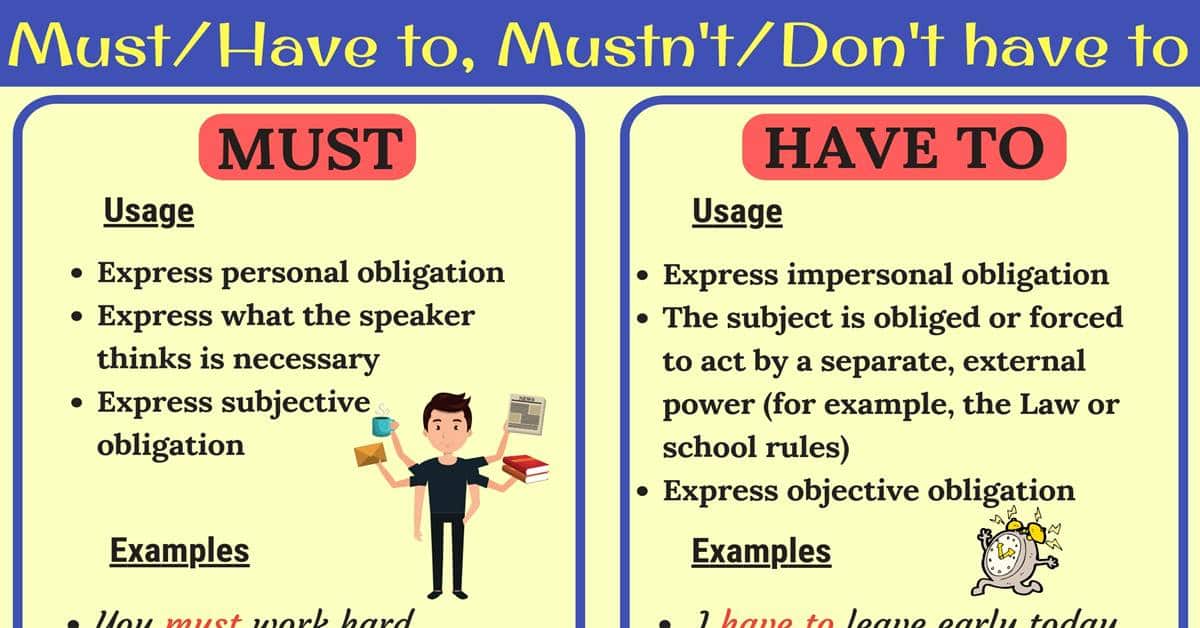
Must Vs Have To Must Not Vs Don T Have To 7esl

Difference Between Must And Have To

Should Must Have To
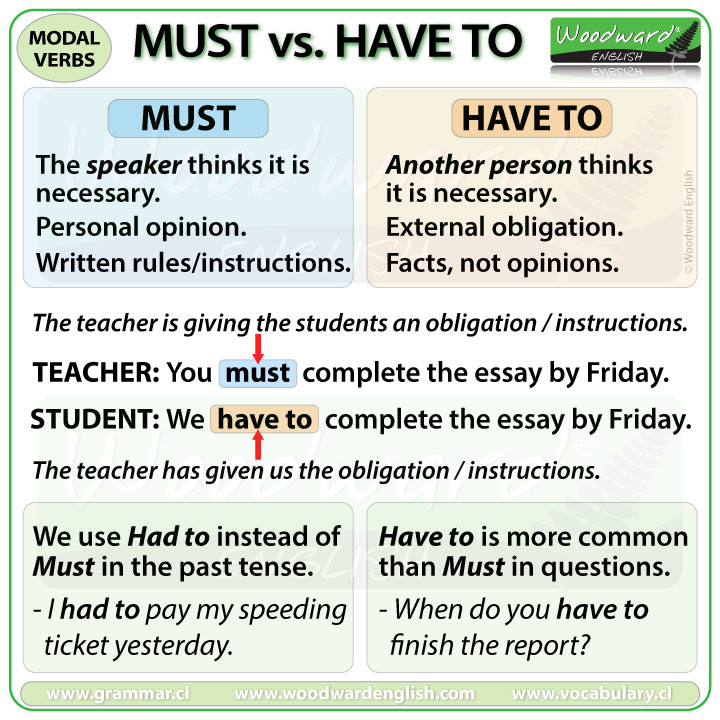
Must Vs Have To Woodward English

Blog For Eso Students January 17

Must Vs Have To Learn The Difference How To Use Modal Verbs In English Happy English Free English Lessons
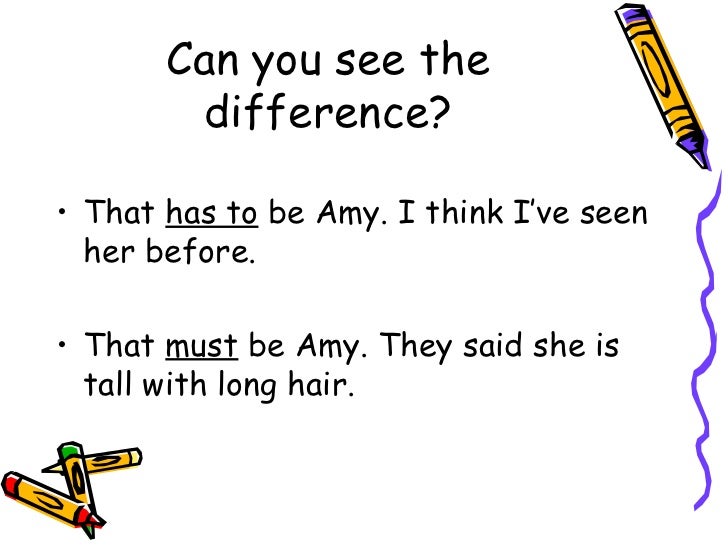
Have To Vs Must

The Difference Between Must Not And Don T Have To Youtube

Has Vs Have How To Use Have Vs Has With Useful Examples 7esl

Differbetween Difference Between Have To And Must

Must Vs Have To Modal Verbs Difference Between Must And Have To Grammar Lesson Spokenenglishcorner

The Difference Between Must And Have To Must Vs Have To Video

Must Vs Have To Build Up Your English Facebook

Must Vs Have To Youtube

To Be Happy In Life You Must Learn The Difference Between What You Want Vs Need Inspirational Quote Quotespictures Com

Pin On English Grammar

Instructor Jully Yin Meeting Room Room 9 Ms Jully Yin Has Been Instructing At National Taipei University Since Education Ms Jully Yin Has Ppt Download

Must Vs Have To What Is The Difference Youtube

Inquire Vs Enquire When To Use Enquire Vs Inquire With Useful Examples 7esl

Mustn T Vs Don T Have To What Is The Difference Youtube

The Difference Between Must Have To Shall Need And May Wall Street English

Pin On Mes Enregistrements
1

Do Vs Does How To Use Does Vs Do In Sentences Confused Words

Must Vs Have To Build Up Your English Facebook

Mustn T Vs Don T Have To What Is The Difference Youtube

Must Vs Ought To Necessity Or Obligation What S Right And Correct Rt tcoqhasuzyqjz Funny Meme On Me Me

Pin On Ielts
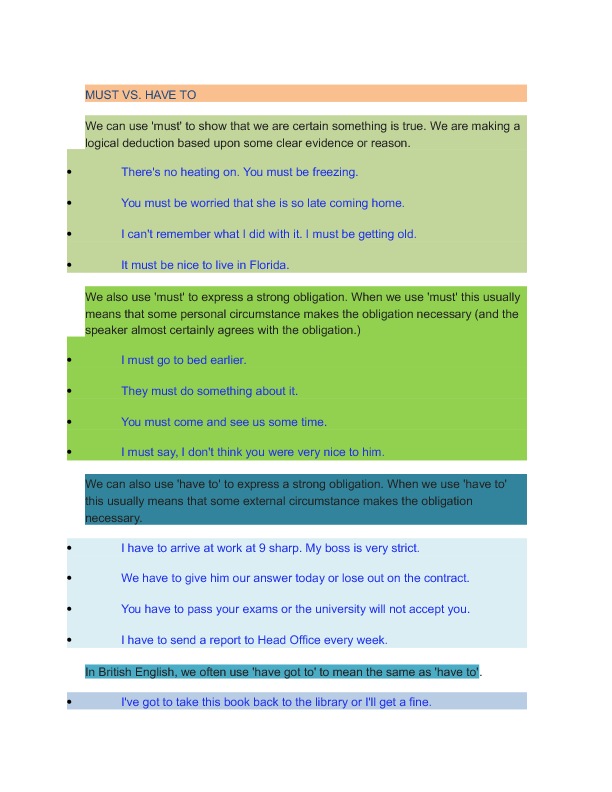
Must Vs Have To

Must And Have To Difference A Free Guide Post
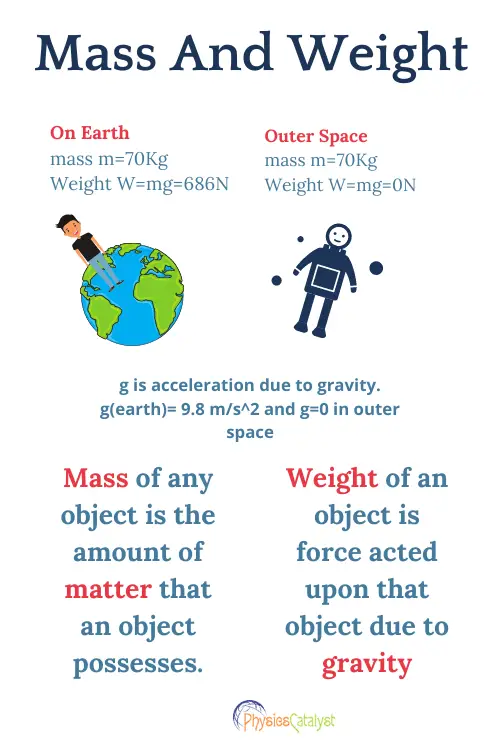
What Is The Difference Between Mass And Weight Physicscatalyst S Blog
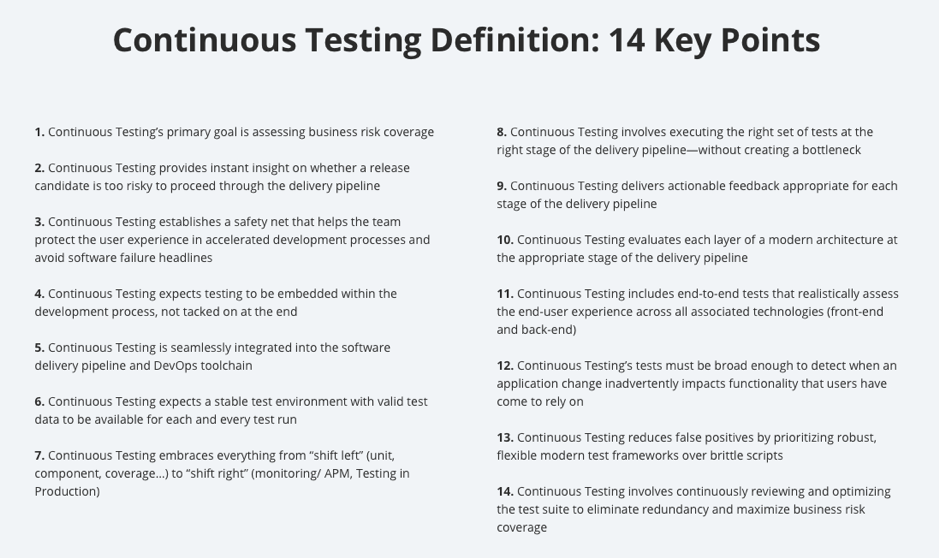
Test Automation Vs Automated Testing What S The Difference And Why Does It Matter

Test English Prepare For Your English Exam

Crucial Difference Between Sarsaparilla And Root Beer You Must Know Fitibility
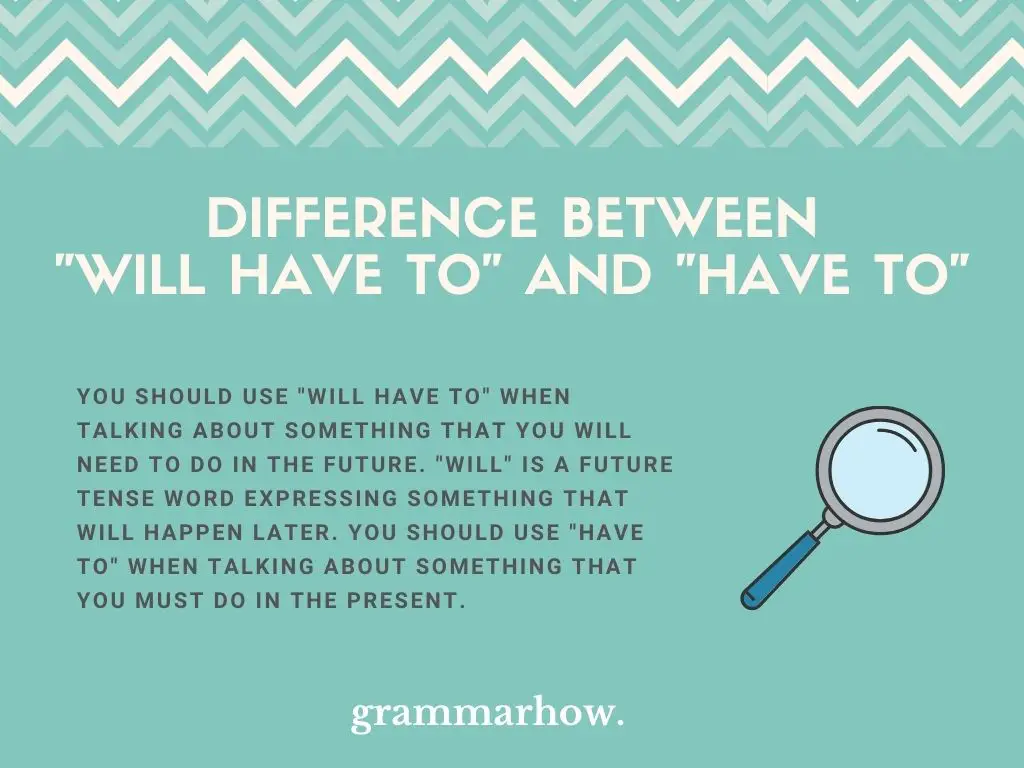
Will Have To Vs Have To Difference Revealed 14 Examples
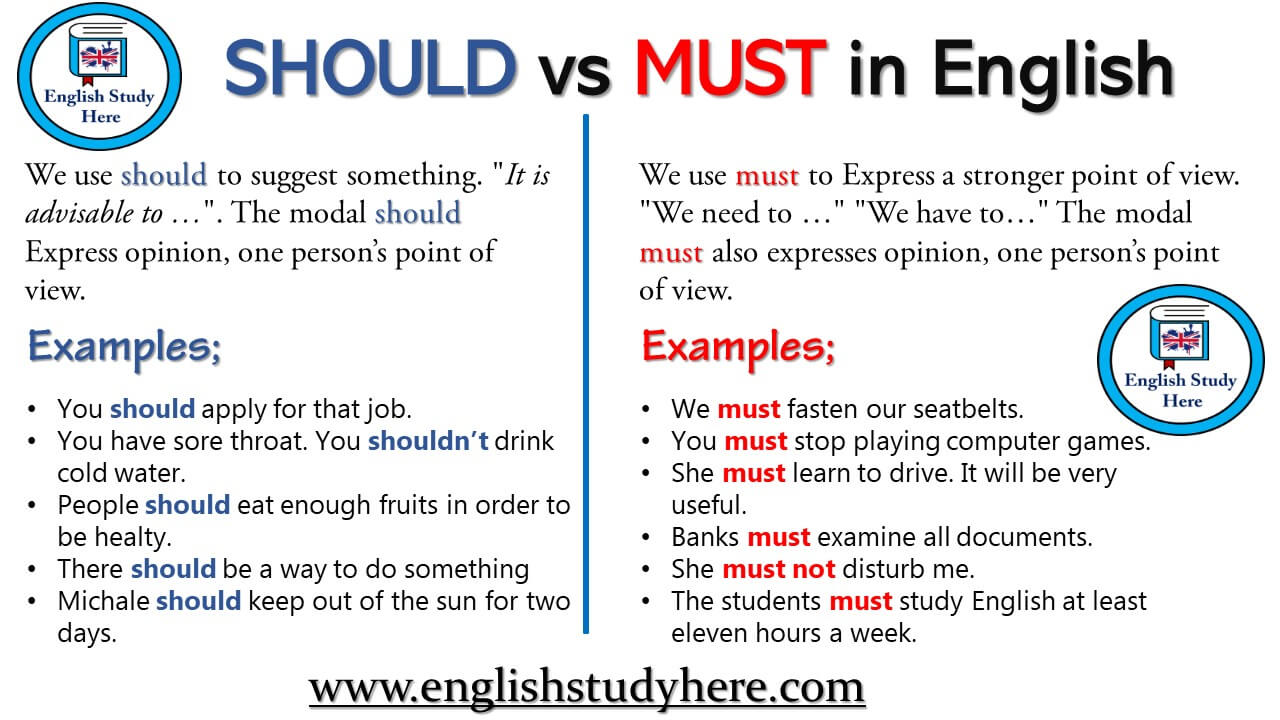
Should Vs Must In English English Study Here

Must Vs Have To Must Not Vs Don T Have To 7esl
/marketing-vs-advertising-what-s-the-difference-2294825-FINAL-5bec5a9ac9e77c00519466cd.jpg)
Differentiating Marketing From Advertising

Difference Between Have To And Must Difference Between

Have To Vs Need To Vs Must What S The Difference In English

Compare Analytics Edge Help

Will Vs Going To Differences Between Will And Going To 7esl

The Difference Between Must Have To Shall Need And May Wall Street English
1
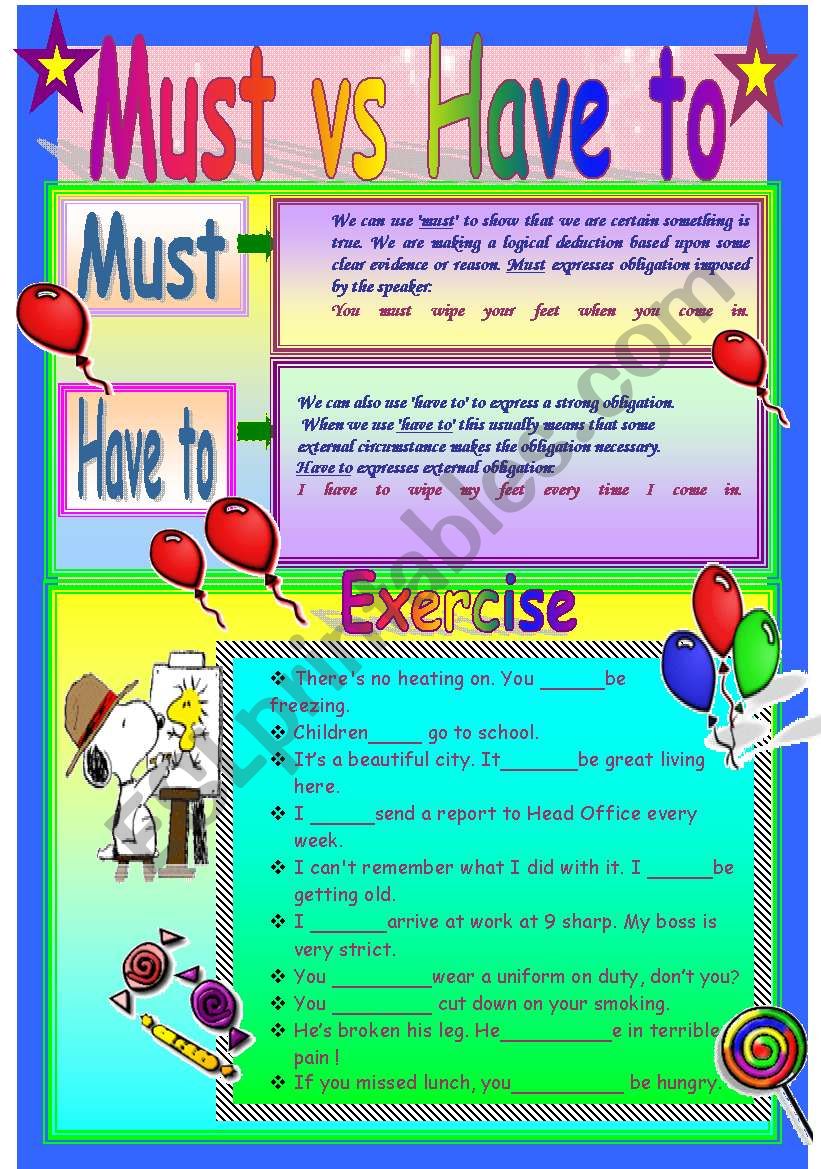
Must Vs Have To Esl Worksheet By Demmieb
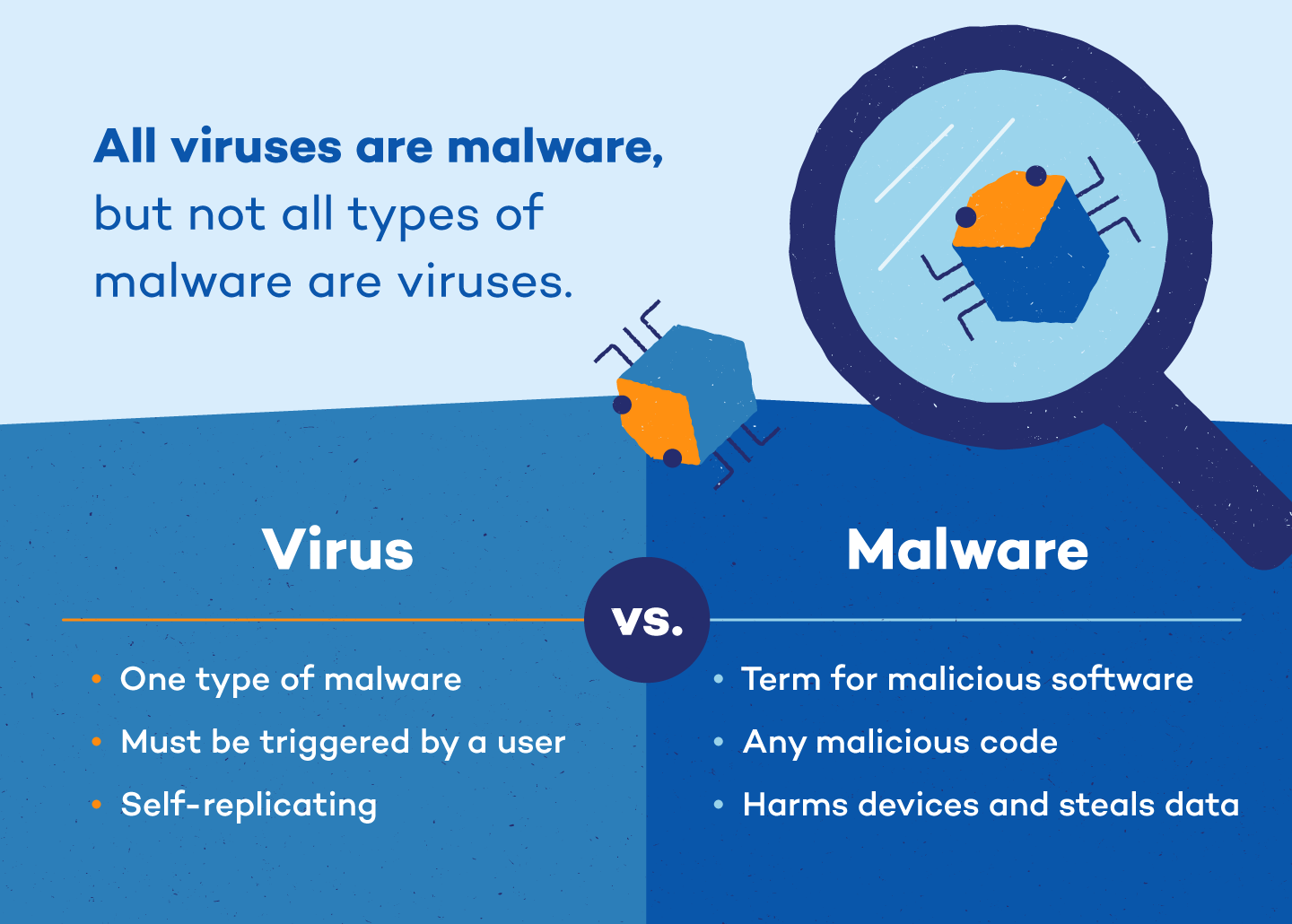
Difference Between Antivirus And Antimalware Do I Need Both Panda Security Mediacenter
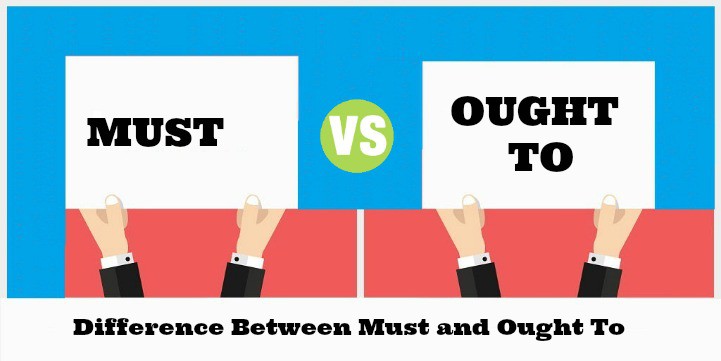
Difference Between Must And Ought To

Boots Uk Boots Pharmacist Shares Advice On Telling The Difference Between Flu Common Colds And Covid 19

Have To Vs Must Watch This Video To Finally Learn The Difference

Which Vs That Is There A Difference Between Which And That

Commonly Confused Words In English Grammar Rules And Examples Eslbuzz Learning English
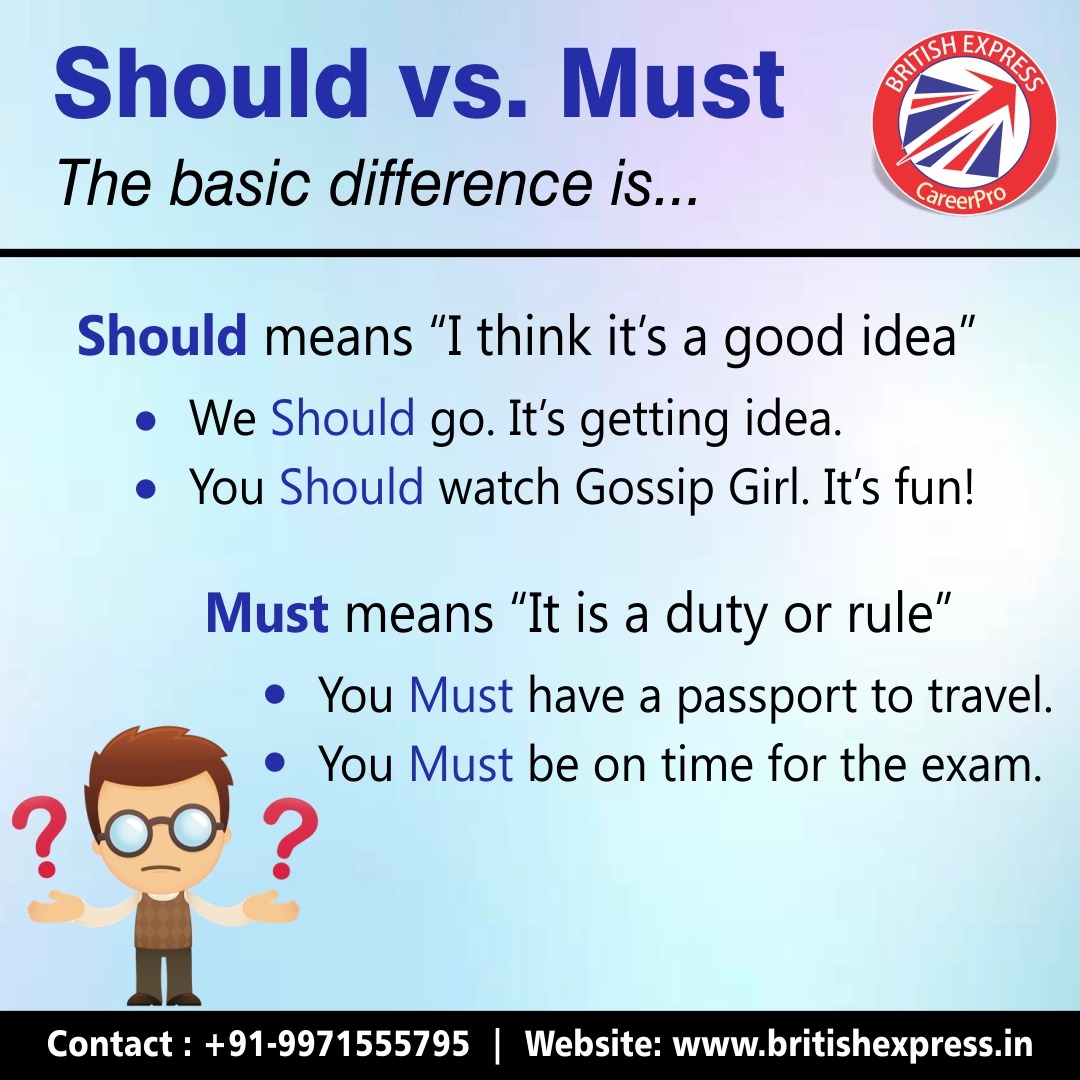
Auxiliaryverb Twitter Search

Can Vs Could What Is The Difference Shakespeare S English

Which Vs That Is There A Difference Between Which And That

Grammar Je Parle English
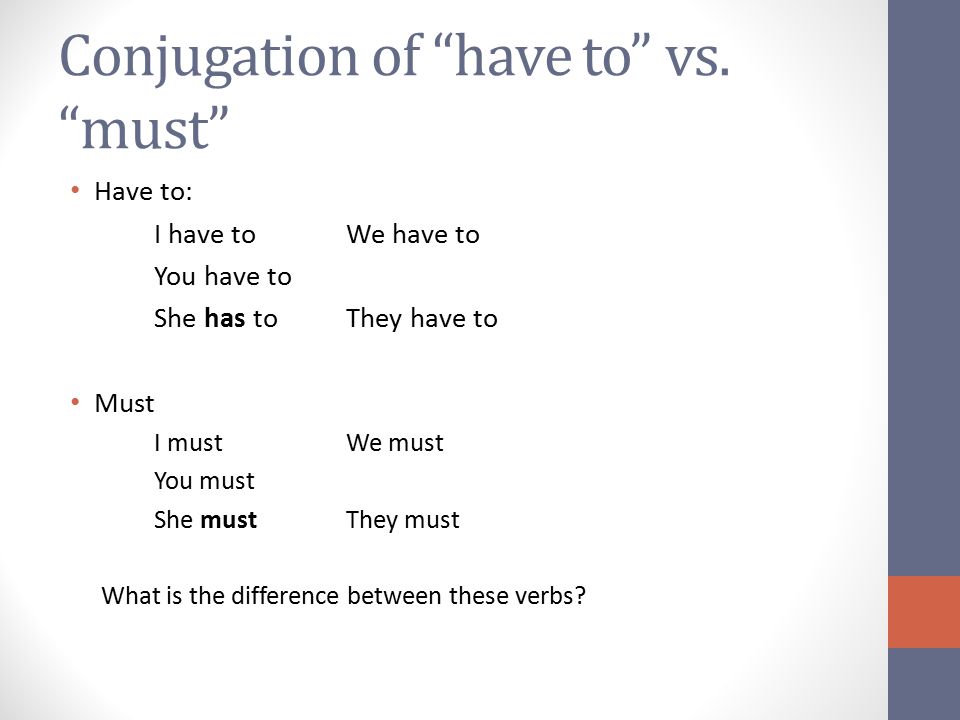
Unit 9 And 10 Grammar Modals Of Necessity Ppt Video Online Download

Quick Tip Must V Have To

Must Vs Have To Easy English Conversation Practice Learn English Mark Kulek Esl Youtube

Must Vs Have To Build Up Your English Facebook

Must Vs Have To
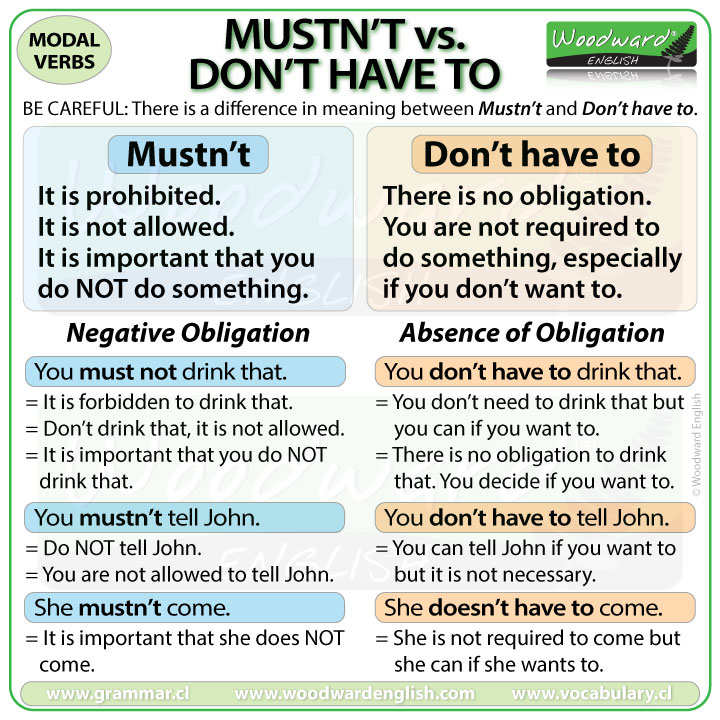
Mustn T Vs Don T Have To Woodward English

Direct And Indirect Speech Exercises

Have To Vs Must Watch This Video To Finally Learn The Difference
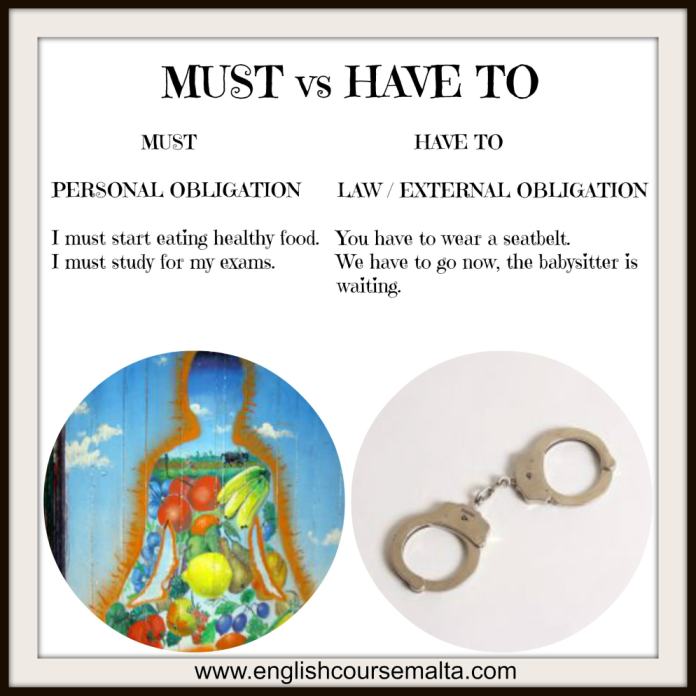
Must Vs Have To Infographic English Course Malta

Urgent Care Vs Emergency Care A Difference You Must Know

Modals Mgr Anna Waligorska Kotfas Pwsz Konin Must Vs Have To Must Have To Has To Rules Laws General Obligation A Strong Obligation Usually Ppt Download

Much Vs Many Difference Between Many Vs Much With Useful Examples Eslbuzz Learning English

Test English Prepare For Your English Exam

The Difference Between Must Have To Shall Need And May Wall Street English

Modal Verbs I Must Have To Dont Have

Cna Vs Rn Career Paths Infographic Goodwin College

Trademark Vs Copyright Which One Is Right For Your Work

Test English Prepare For Your English Exam
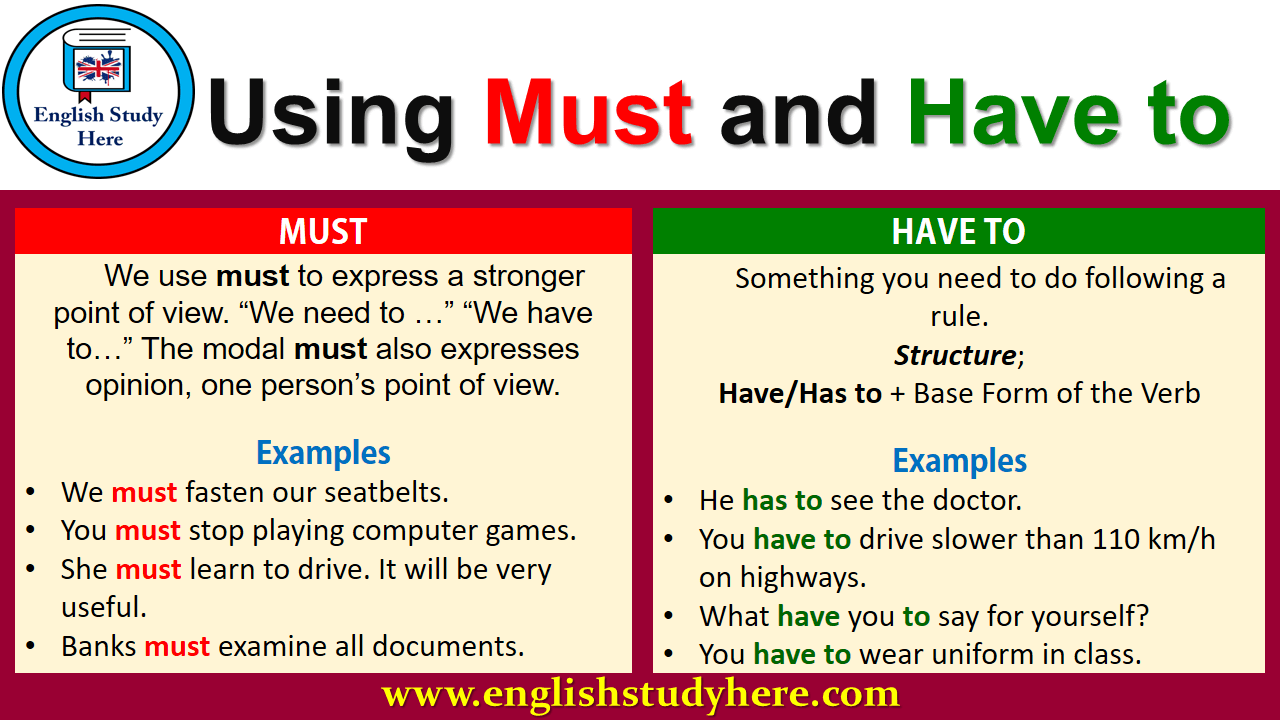
Using Must And Have To In English English Study Here
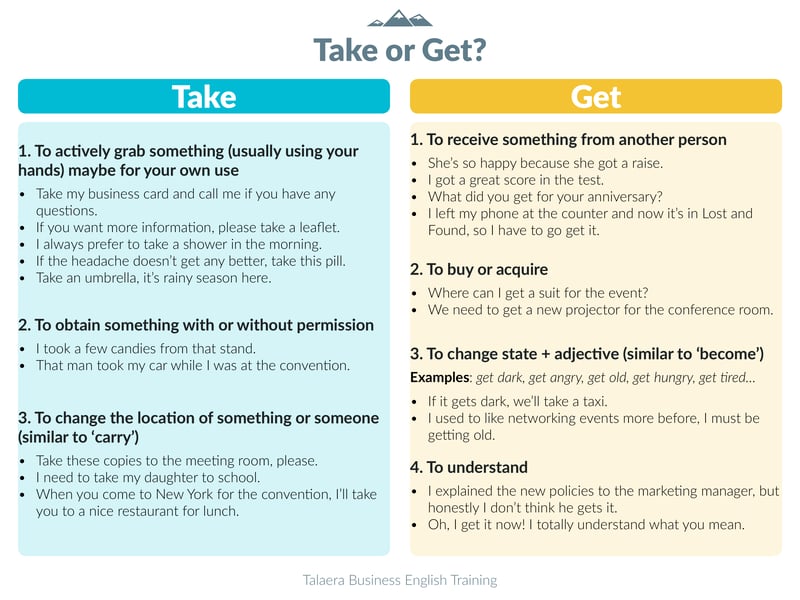
Take Vs Get Includes Examples And Exercises
1

Meaning Examples Can Could May Might Will Would Shall Should Must Shakespeare S English
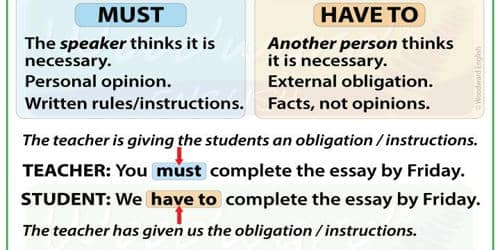
Difference Between Must And Have To Assignment Point

English Grammar Must And Have To Mustn T And Don T Have To Eslbuzz Learning English
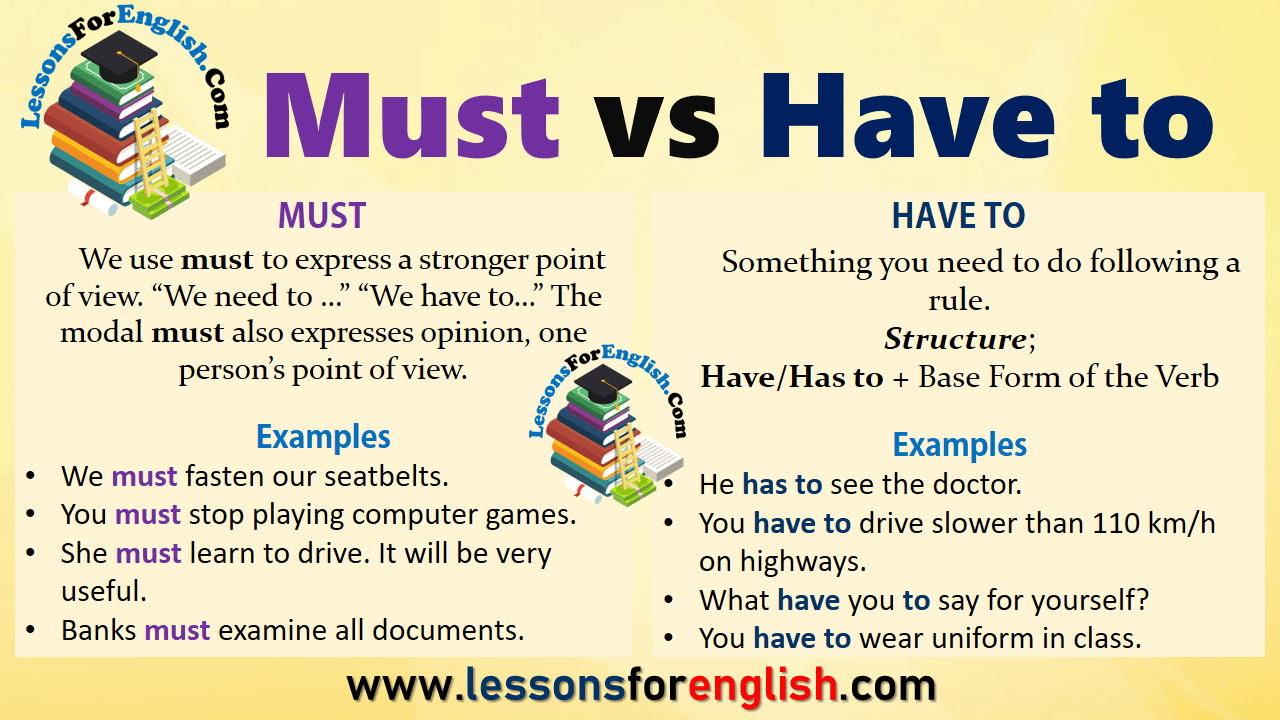
Must Vs Have To In English Vocabulary Home
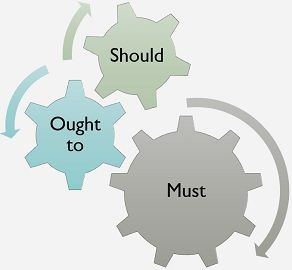
Difference Between Should Ought To And Must With Example And Comparison Chart Key Differences

Have To Vs Need To Vs Must What S The Difference In English Advanced English Grammar Youtube
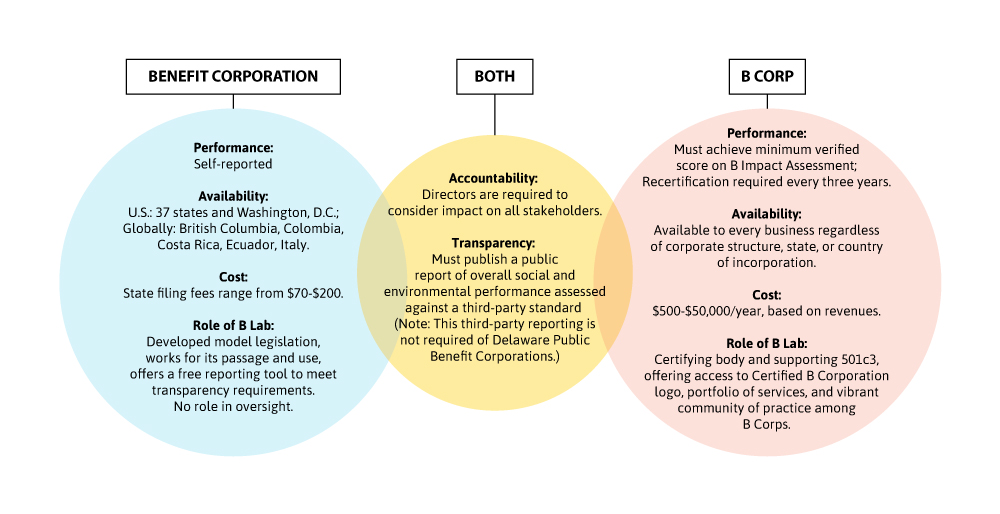
What S The Difference Between A B Corp And A Benefit Corporation Socap Global

Modals Must Vs Have To In English Englishacademy101

The Difference Between Must Have To Shall Need And May Wall Street English

Difference Between Must And Have To With Examples And Comparison Chart Key Differences

What S The Difference Between A Chiropractor And A Physical Therapist Blog
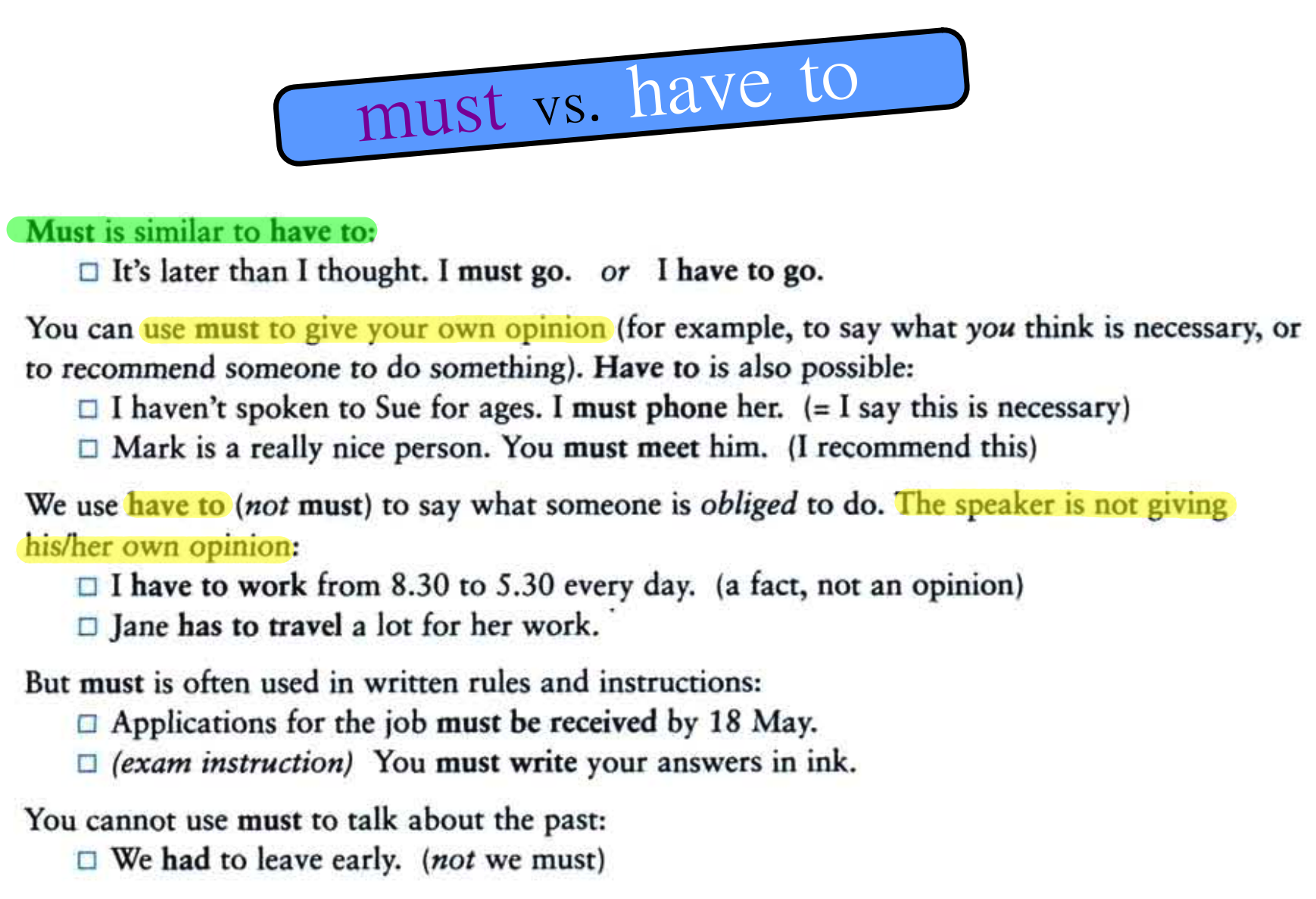
Must Vs Have To Lessons Blendspace

Must And Have To Difference A Free Guide Post
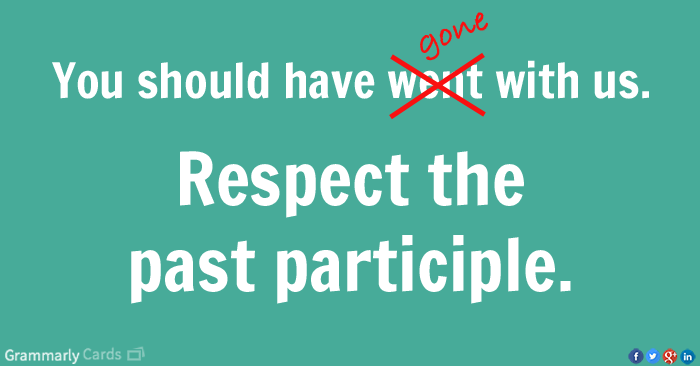
Went Vs Gone Learn The Difference In Under A Minute Grammarly

Pin On Ingilizce

Modal Verbs 2 Must Vs Have To English 4 All
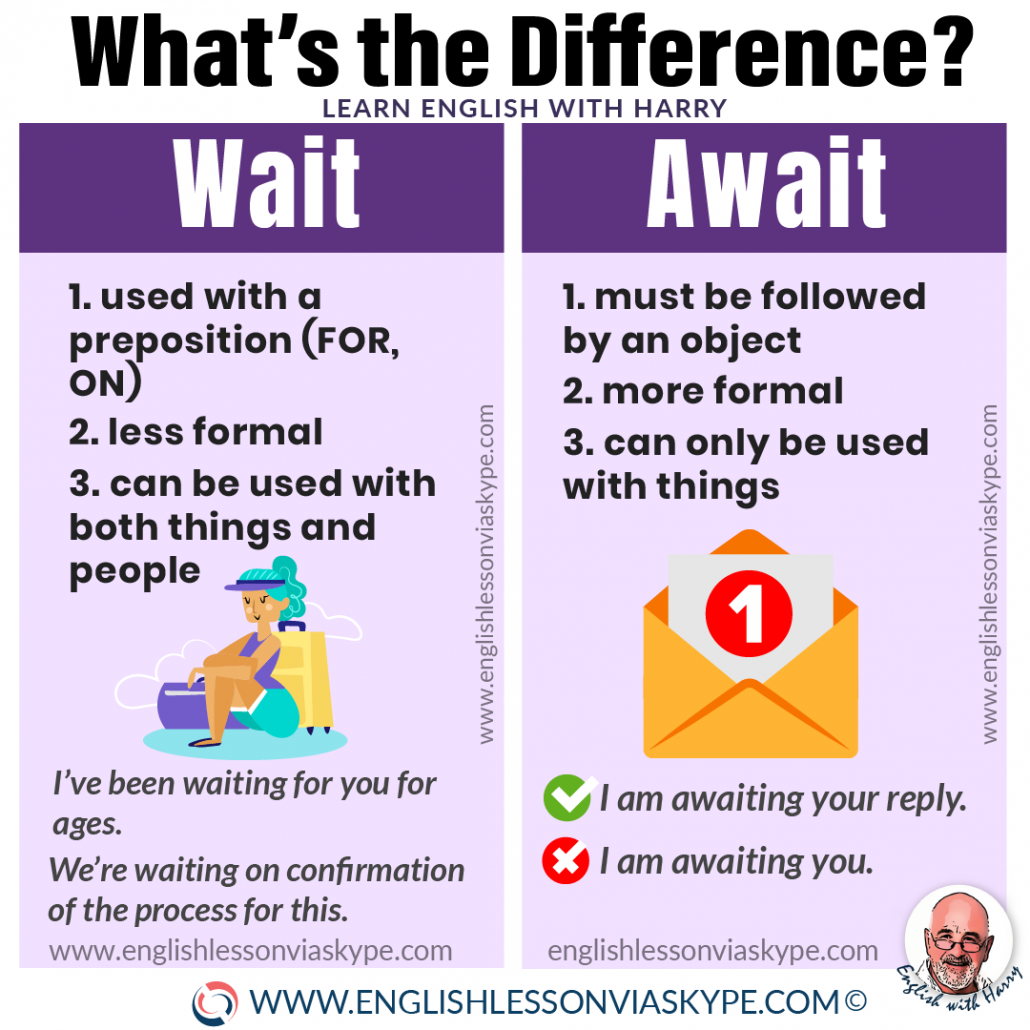
Wait Vs Await What S The Difference Learn English With Harry

Must Vs Have To Modal Verbs Difference Between Must And Have To Grammar Lesson Spokenenglishcorner

English Fluency Must Vs Have To 7esl Com Difference Must Vs Have To Must Not Vs Dont Have To Facebook

Difference Between Must And Most With Table Ask Any Difference

Modals Must Vs Have To

Uses Of Must And Differences Between Must And Have To English Learn Site

Must Vs Have To What Is The Difference Youtube

English Grammar Must And Have To Mustn T And Don T Have To Eslbuzz Learning English
Have To




